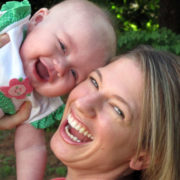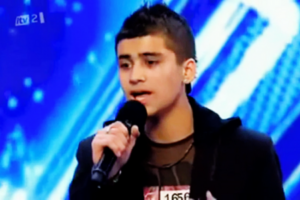Parents and Teachers: How to Talk to Children about the Paris Attacks
 How to Talk to Kids about the Paris Attacks and Other Tragic Events
How to Talk to Kids about the Paris Attacks and Other Tragic Events
Many of us stayed up late watching everything we could about the tragic Paris Attacks on Friday night. We waited to find out more on Saturday about how many lives were lost, if the perpetrators were all captured and how France and other nations were going to respond.
As a mother of a 5 and 6 year old, I kept the news off while they were in the room and remember running up to the TV to turn it off when a Sunday morning story about the death toll suddenly came on—that’s not the way I want them to find out. Still, I don’t have my head in the sand. it’s important to be prepared to discuss these tragic situations as children hear a great deal in school and from their friends. And with older children in late elementary school, middle school or high school, they likely have head about it already.
How should parents handle it when a large-scale tragedy occurs in the world such as the Paris Attacks?
- You are the trusted source: If you have a feeling that your children will hear about the tragedy in school, talk to them about it as soon as possible. You can give them the information that is true, appropriate and helpful. Older children might want to learn more about who was involved in the attacks- and there are some websites that provide easy-to-understand information that you can read together or you can read and then discuss the points that you feel are necessary. For example there is this and this for explanations of more complicated facts.
- Use age-appropriate language and information: Children don’t need to hear the gory details. Give them the information that they need to know in words that they would understand. You can be factual without being gruesome. It is important to set the tone and provide the facts instead of allowing someone else, who may not be correct or appropriate, to do it for you.
- Allow emotions and fears to surface: Don’t dismiss your children’s fears or emotions. Rather, allow them to have a safe place to express them. If you are upset (as humans, of course we are!), you can talk about being sad or frustrated without going into full detail or matching their intensity. For example, you can say; “I am sad this happened to these people” or “I am frustrated that I can’t help.” In fact, it’s best for adults to talk to other adults about their own feelings rather than delving in deep with children who may not be fully equipped yet to understand.
- Let them know they are safe: Children are often concerned with their own safety and the safety of their friends and family surrounding them. Make sure they know that events such as these are rare. Talk to them about the adults in this world who are doing what they can to keep the people safe. Discuss the helpers, the heroes and those who are taking action to create peace in this world.
- Keep an open door: Many children will need more than one conversation to put their questions, fears and concerns to rest. Let your children know that you are available to talk to them if they have questions. You may not know all the answers, but you will do your best to find them out or explore them with your child. For older children, don’t assume that they fully know what’s going on or that you know what they are thinking or feeling. Ask them what they know and how they feel about it. If you feel that there is a better person for your children to talk to about this tragedy, be the bridge or the passageway to the right person so your children feel that their questions have been answered.
- Honor the loss of life: Whether the tragedy was Sandy Hook, The Boston Marathon bombing or the Paris Attacks, find ways to honor those who were lost. This may be orchestrated through a moment of silence, a family donation or finding ways to help personally.
- Understand that children all react differently: Some children will want to talk about what’s happening while others might clam up. Some will have lots of questions, while others might seem disinterested. All children react differently. Be aware of hidden signs that a child is upset. For example, sleeping more or having trouble sleeping, withdrawing from friends or wanting to spend more time with family, acting out with poor behavior or wanting to stay home from school. Be open if and when your children become open to talking about the Paris Attacks or tragic events like them.
The best thing we can do for our children is to give them the time, space and arena to discuss their feelings and questions. Just being there can be a comfort when tragedies like the Paris Attacks, the Boston bombing, Sandy Hook occur. And of course, as always, hug them tight and tell them that they are loved. Feeling safe and secure can go a long, long way.





 James Harrison, football star on the Pittsburgh Steelers, is one tough linebacker. He also has drawn a hard line when it comes to parenting. On Instagram this past weekend, he reported that his 2 sons received “participation trophies” and that he was returning them.
James Harrison, football star on the Pittsburgh Steelers, is one tough linebacker. He also has drawn a hard line when it comes to parenting. On Instagram this past weekend, he reported that his 2 sons received “participation trophies” and that he was returning them.


 We all get that feeling that we are messing up our children sometimes. I do too. Often…if I’m being honest.
We all get that feeling that we are messing up our children sometimes. I do too. Often…if I’m being honest.

 As you can imagine, I have been receiving calls and emails this morning from the press asking me to provide tips on “the loss of Zayn Malik” from One Direction. At first glance, I thought he might have died and quickly looked up the story so I could comment effectively. But he didn’t die– he is simply leaving the group to move in a different direction– one away from his One Direction life. In fact, he declared that he wanted to live as a “normal 22 year old.”
As you can imagine, I have been receiving calls and emails this morning from the press asking me to provide tips on “the loss of Zayn Malik” from One Direction. At first glance, I thought he might have died and quickly looked up the story so I could comment effectively. But he didn’t die– he is simply leaving the group to move in a different direction– one away from his One Direction life. In fact, he declared that he wanted to live as a “normal 22 year old.” Adding to what I view as the “reality effect,” music has an added benefit of creating and putting an indelible mark on our memories– providing a time stamp on important moments in our lives. It’s as if these stars are present in our lives, offering a comfort on bad days and a celebratory song on good ones.
Adding to what I view as the “reality effect,” music has an added benefit of creating and putting an indelible mark on our memories– providing a time stamp on important moments in our lives. It’s as if these stars are present in our lives, offering a comfort on bad days and a celebratory song on good ones. So it’s not surprising that when Zayn Malik said his farewells to One Direction, many fans started grieving his loss as if he was walking out of their lives. It’s a break up for them, too. Fan watched him move from young hopeful to star from X-Factor to international recognition. And now he’s leaving.
So it’s not surprising that when Zayn Malik said his farewells to One Direction, many fans started grieving his loss as if he was walking out of their lives. It’s a break up for them, too. Fan watched him move from young hopeful to star from X-Factor to international recognition. And now he’s leaving.
 involved in sports, we also want them to stay on top of their academics, spend time with friends and family, relax and engage in other activities that they love. But our children can’t do everything. Some options to think about are (1) Limit the number of competitive sports to one (or maybe two if they are seasonal) per year, (2) Consider recreational sports instead of competitive ones or do a combination of each, (3) Schedule in breaks during the week or during the year when the pressure is off and the children can just be children.
involved in sports, we also want them to stay on top of their academics, spend time with friends and family, relax and engage in other activities that they love. But our children can’t do everything. Some options to think about are (1) Limit the number of competitive sports to one (or maybe two if they are seasonal) per year, (2) Consider recreational sports instead of competitive ones or do a combination of each, (3) Schedule in breaks during the week or during the year when the pressure is off and the children can just be children.


 “I think it’s very important to teach your children to struggle on some level,” actress, Kate Winslet
“I think it’s very important to teach your children to struggle on some level,” actress, Kate Winslet 
 If you stopped me on the street and challenged me to come up with the top rule in my household, I would likely say; “Kind thoughts, kind words, kind actions.” Having a 4 ½ year old boy and an almost 6 year old girl, just 16 months apart and often wildly competitive with one another, necessitates having to repeat these words often.
If you stopped me on the street and challenged me to come up with the top rule in my household, I would likely say; “Kind thoughts, kind words, kind actions.” Having a 4 ½ year old boy and an almost 6 year old girl, just 16 months apart and often wildly competitive with one another, necessitates having to repeat these words often.